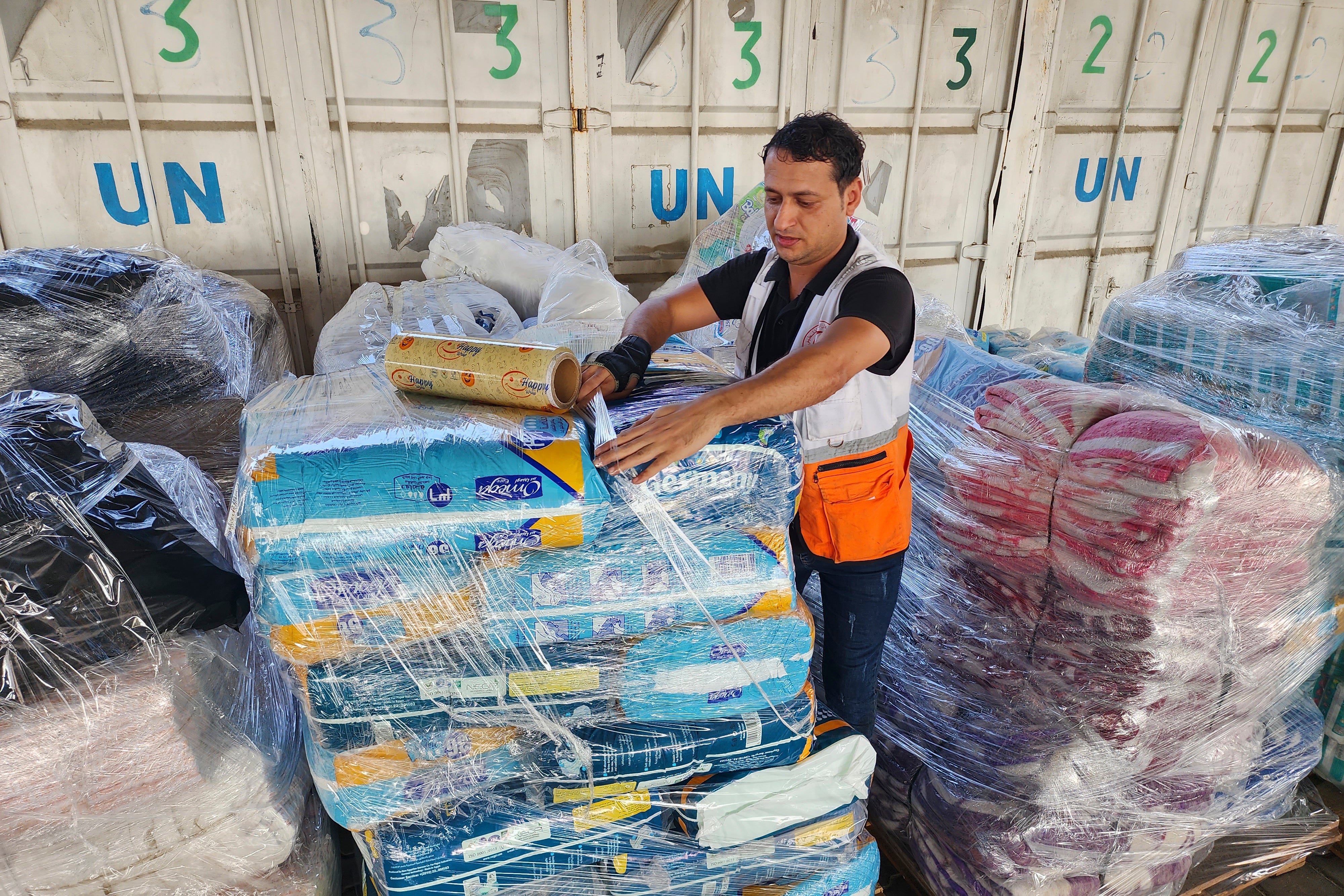Leading NGOs slam Israel's halt in visa renewals for aid workers in Gaza and West Bank
A coalition of humanitarian and nongovernmental groups has slammed Israel's halt in renewing visas for international aid workers in the Gaza Strip and the occupied West Bank

Israel’s halt in renewing visas for international aid workers in the Gaza Strip and the Israeli occupied West Bank is kneecapping aid work just when it's needed the most, a coalition of humanitarian and nongovernmental groups says.
Israel’s welfare ministry has paused the visa renewal process since early February, saying it doesn’t have the bandwidth to investigate aid workers’ potential affiliations to militant groups.
At least 99 humanitarian workers have seen their visas expire or have visas that will expire in the coming six months, according to Faris Arouri, the director of the coalition. Those facing impending deportation orders have left while others remain in Israel without proper documentation, he said Wednesday.
The halt in visas comes as Israel this week ramped up criticism of the embattled U.N. agency for Palestinian refugees, saying that 450 of its employees were members of militant groups in the Gaza Strip. Israel provided no evidence to back up its accusation.
Major international funders have withheld hundreds of millions of dollars from the agency, known as UNRWA, since Israel accused 12 of its employees of participating in the Oct. 7 Hamas attacks on Israel that killed 1,200 people and left about 250 others held hostage in Gaza, according to Israeli authorities.
The coalition, called the Association of International Development Agencies, or AIDA, says its members have played a critical role and are desperately needed more than five months into the Israel-Hamas war in Gaza.
People are dying of hunger in northern part of the Gaza Strip while more than a million have fled south. Tens of thousands now cram into makeshift tents along the border with Egypt. Besieged hospitals across Gaza confront a daily flow of wounded with insufficient medical supplies.
The Hamas Oct. 7 attack prompted an Israeli offensive that has killed more than 30,000 Palestinians so far in Gaza, according to health officials in the Hamas-run enclave, displaced most of the territory’s population and led to a humanitarian disaster.
The situation in the West Bank — where many of the organizations also work — has reached a boiling point, aid workers say. The Palestinian health ministry says that Israeli forces have killed 424 Palestinians and injured over 4,000 in the West Bank since the start of the Gaza war. At least 1,208 Palestinians have been displaced, as settler violence surges in the territory.
Against this backdrop, AIDA has called on the Israeli government to immediately resume processing the visas. The coalition represents 80 aid organizations, including Amnesty International, Doctors Without Borders, the Norwegian Refugee Council and Save the Children.
“We ask for your urgent intervention in preventing the removal of the international workers in these organizations, and in preventing further damage to the organizations, which is occurring precisely in this period of the worst humanitarian crisis the region has ever known,” lawyers said on behalf of AIDA in a letter to Israel's attorney general.
Israel's Ministry of Welfare was traditionally in charge of facilitating the issuing of the visas but stopped doing that amid heightened concerns following the Oct. 7 attack.
“The welfare ministry does not have the right tools to examine the applications,” said spokesperson Gil Horev. “On what grounds can a worker in the social ministry examine if a person has to do with a terrorist organization or is a humanitarian worker?”
Horev said the task will likely be handled by another government agency but did not say when the process could move forward.
Arouri, AIDA's director, said there is no legitimate concern that in-country aid workers could be caught up in militant groups. “These are people who are known to Israel, who have been screened before,” he said.
“We see this visa ban as part of the collective punishment that the Palestinians have been facing since October 7,” Arouri said. "This is part and parcel of Israel’s attempt to block the world from really seeing what’s happening on the ground and to block aid from entering.”
The visa troubles also extend to U.N. employees working in the Palestinian territories, said a U.N. official with knowledge of the matter, speaking on condition of anonymity because of fears of repercussions over the issue.
Typically, U.N. workers get yearlong visas from Israel’s Ministry of Foreign Affairs, but since Oct. 7, workers for specialized U.N. agencies have only been able to get two-month visas while their spouses and families received only one-month visas.
At least 67 visa requests across the U.N. agencies have received no response from Israel, said the U.N. official. The holdup threatens to hinder UN aid to Gaza.
Israel’s foreign ministry did not immediately respond to a request for comment.
Subscribe to Independent Premium to bookmark this article
Want to bookmark your favourite articles and stories to read or reference later? Start your Independent Premium subscription today.
